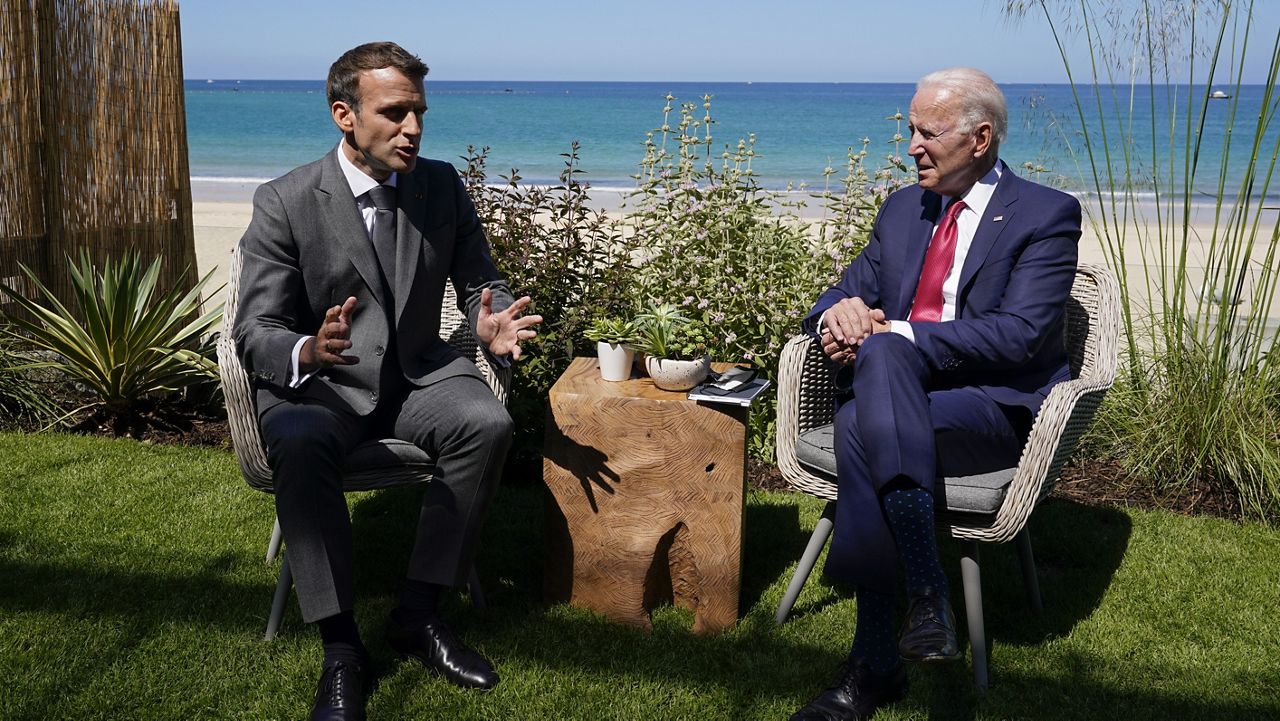France will send its ambassador back to Washington next week after French President Emmanuel Macron’s phone call with President Joe Biden over a submarine dispute, the Elysee and the White House said Wednesday.
The disagreement between the two nations began in the aftermath of a defense agreement between the U.S., Australia and Britain, which saw Australia cancel a multibillion-dollar deal to buy diesel-electric submarines from France in favor of nuclear-powered submarines from the U.S.
France recalled its ambassadors to Washington and Canberra last week in the aftermath of the announcement, the first time ever the country has recalled its ambassador to the U.S., according to the French foreign ministry.
According to a White House readout of the call, Biden and Macron "agreed that the situation would have benefitted from open consultations among allies on matters of strategic interest to France and our European partners."
Both heads of state “have decided to open a process of in-depth consultations, aimed at creating the conditions for ensuring confidence and proposing concrete measures toward common objectives,” the Elysee and the White House said in a joint statement.
Macron and Biden will meet at the end of October in Europe, the statement said, "in order to reach shared understandings and maintain momentum in this process."
"President Biden reaffirms the strategic importance of French and European engagement in the Indo-Pacific region, including in the framework of the European Union’s recently published strategy for the Indo-Pacific," per the White House. "The United States also recognizes the importance of a stronger and more capable European defense, that contributes positively to transatlantic and global security and is complementary to NATO."
"In the framework of their joint fight against terrorism, the United States commits to reinforcing its support to counter-terrorism operations in the Sahel conducted by European states," the statement concludes.
White House press secretary Jen Psaki later Wednesday described the conversation as "friendly."
"It was one where we're hopeful and the president is hopeful this is a step in returning to normal," she added.
France’s European Union partners agreed Tuesday to put the dispute at the top of bloc’s political agenda, including at an E.U. summit next month.
The French presidency categorically denied a report by Britain’s Daily Telegraph newspaper published on Wednesday saying Macron could offer the country’s permanent seat at the U.N. Security Council to the European Union if the bloc backs his plans on EU defense.
British Prime Minister Boris Johnson dismissed French anger over the submarine deal, saying French officials should “get a grip.” Using both French and English words, he added they should give him a “break.”
Speaking to reporters on a visit to Washington, Johnson said the deal was “fundamentally a great step forward for global security. It’s three very like-minded allies standing shoulder-to-shoulder, creating a new partnership for the sharing of technology.”
“It’s not exclusive. It’s not trying to shoulder anybody out. It’s not adversarial towards China, for instance.”
The deal has widely been seen as part of American efforts to counter a more assertive China in the Indo-Pacific region.



